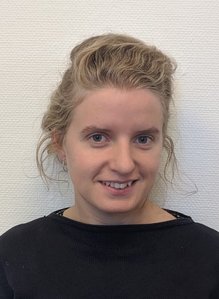PhD-præ-forsvar: Astrid Meyer
Astrid's PhD afhandling omhandler overvågningsteknologier på demensområdet

Mandag d. 6. november 2023 afholder Astrid Meyer præ-forsvar for hendes afhandling omkring overvågningsteknologier på demensområdet.
Præ-forsvaret er en mulighed for at få sparring på de resultater, Astrid har opnået gennem PhD-forløbet. Astrid har blandt andet været tilknyttet forskningsprojektet LIVSTEGN siden 2021. Vi glæder os til at høre om afhandlingens resultater!
Nedenfor kan du læse Astrids abstract om afhandling.
Abstract
Recently, a new legal framework in Denmark opened up for increased use of surveillance technologies to support care and safety for people with dementia who are likely to walk off and easily get lost. In these cases, a door alarm or motion sensor may notify relatives and care workers before a person with dementia leaves, while GPS-trackers make it much easier to find people with dementia once they have gone far away from their home. These technologies do, however, also raise many ethical and practical questions about the balancing of privacy, autonomy and safety. Through ethnographic observations, interviews and participatory design-inspired workshops, I explore the possibilities and issues of using surveillance technologies in dementia care.
I argue that the technologies come with particular demands and shape dementia care in new and often unforeseen ways. Throughout this thesis, I focus on (1) what the technologies require, (2) what roles they play, (3) how they affect other care practices and (4) point to a framework for working with the technologies developed in collaboration with care workers. Furthermore, I explore movement with dementia more broadly using a phenomenological approach. Drawing on empirical ethics and STS, I suggest that surveillance technologies play important roles in shaping care workers’, relatives’ and people with dementia’s understandings of what they consider good care. In doing so, I aim to raise questions about and add nuance to ethical use of surveillance in dementia care.
